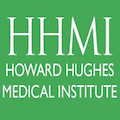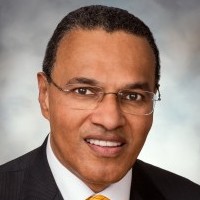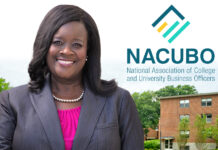 The Howard Hughes Medical Institute, the largest private funder of biomedical research in the nation, has launched the Freeman Hrabowski Scholars Program to help build a scientific workforce that more fully reflects our increasingly diverse country. The $1.5 billion program honors Freeman A. Hrabowski, III, outgoing president of the University of Maryland Baltimore County for his decades of leadership in growing and diversifying the pipeline of Ph.D.-level researchers, most prominently through his university’s Meyerhoff Scholars Program.
The Howard Hughes Medical Institute, the largest private funder of biomedical research in the nation, has launched the Freeman Hrabowski Scholars Program to help build a scientific workforce that more fully reflects our increasingly diverse country. The $1.5 billion program honors Freeman A. Hrabowski, III, outgoing president of the University of Maryland Baltimore County for his decades of leadership in growing and diversifying the pipeline of Ph.D.-level researchers, most prominently through his university’s Meyerhoff Scholars Program.
UMBC is now the nation’s #1 producer of Black bachelor’s degree recipients who go on to earn a Ph.D. in the natural sciences and engineering. Meyerhoff Scholars alumni have earned 385 Ph.D.s, 155 medical degrees, and more than 300 master’s degrees. More than 370 additional Meyerhoff alumni are currently enrolled in graduate and professional school.
 “We should all be encouraged by HHMI’s commitment to changing the face of science in America,” Dr. Hrabowski said. “This initiative shows what is possible when an institution is guided by its values and by evidence of what works. I am deeply honored to be connected with HHMI and with this new program.”
“We should all be encouraged by HHMI’s commitment to changing the face of science in America,” Dr. Hrabowski said. “This initiative shows what is possible when an institution is guided by its values and by evidence of what works. I am deeply honored to be connected with HHMI and with this new program.”
HHMI has designed the new Freeman Hrabowski Scholars Program to ensure that early career faculty have resources and support to become both leaders in their research fields and effective leaders and mentors of trainees from racial and ethnic backgrounds currently underrepresented in U.S. science.
HHMI expects to hire and support up to 150 early-career faculty over the next 20 years. The program will select 30 scholars every other year for the next decade. Each scholar will be appointed to a five-year term, renewable once with evaluation. Scholars will receive up to $8.6 million over 10 years, including full salary, benefits, a research budget, and scientific equipment.
“For academic science to thrive in an increasingly diverse world, we need to attract and support scientists from a wide variety of racial and ethnic backgrounds,” says Erin O’Shea, president of the Howard Hughes Medical Institute. “Early career faculty play a key role because they are the leaders of tomorrow. We’re excited to support talented early career scientists dedicated to a model of excellence in science that combines innovative scientific research and intentional, inclusive development of postdocs, students, and other lab members.”











